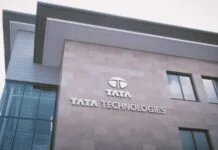Tesla, led by Elon Musk, has officially started hiring in India, signalling its much-awaited entry into the Indian market. As the company prepares to launch its vehicles, a recent report by CLSA, a global capital markets firm, sheds light on the potential pricing of Tesla cars in India, even with reduced import duties.
According to the report, Tesla’s most affordable model, the Model 3, is priced at around $35,000 (approximately ₹30.4 lakh) in the US at the factory level. Even with a reduction in import duties to 15-20%, additional costs such as road tax, insurance, and other charges would push the on-road price to approximately $40,000 (₹35-40 lakh). This means the Model 3 would likely remain a premium offering in India.
The report further states that if Tesla positions the Model 3 at a price 20-50% higher than popular domestic electric vehicles (EVs) like the Mahindra XUV400, Hyundai Kona Electric, and Maruti Suzuki’s upcoming EV models, it may not significantly disrupt the Indian EV market. Indian consumers are known for their price sensitivity, and Tesla’s premium pricing could limit its appeal to a niche audience.
To make its vehicles more accessible, Tesla would need to establish local manufacturing facilities in India. The report highlights that under India’s EV policy, Tesla could benefit from a reduced import duty of 15% on up to 8,000 units annually if it invests over ₹4,150 crore in setting up a production plant. Without such an investment, Tesla’s cars are likely to remain expensive for the majority of Indian buyers.
The report also draws parallels with the Indian motorcycle market, where Harley-Davidson’s X440, priced 20% higher than the Royal Enfield Classic 350, sells only around 1,500 units monthly, compared to the Classic 350’s 28,000 units. This underscores the importance of competitive pricing in the Indian market.
Despite Tesla’s entry, the report suggests that major Indian automakers may not face significant disruption, as EV adoption in India remains lower compared to markets like China, Europe, and the US. Tesla’s initial focus will likely be on metropolitan cities like Delhi and Mumbai, where demand for premium EVs is higher.
In summary, while Tesla’s entry into India is a significant milestone, its success will depend on its willingness to invest in local manufacturing and offer competitively priced models. Without these steps, Tesla’s vehicles may remain a luxury for a small segment of Indian consumers.
If you are looking for a good place to visit in India, you can go to Kalimpong camping.






